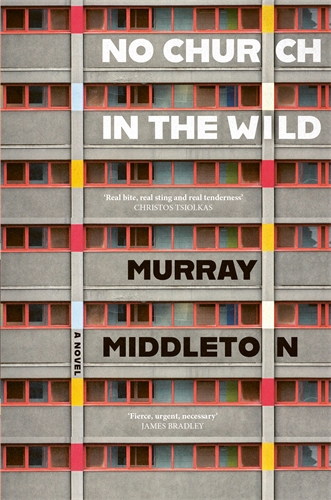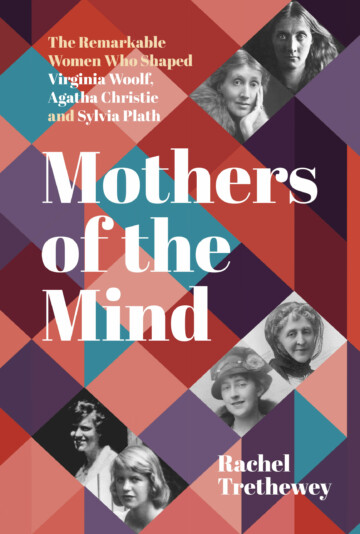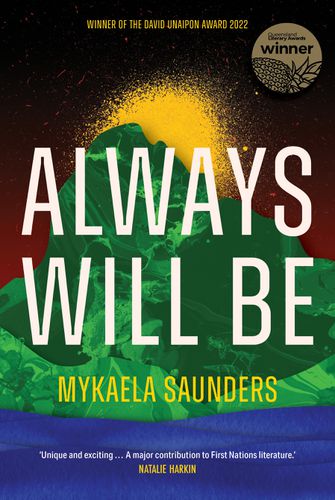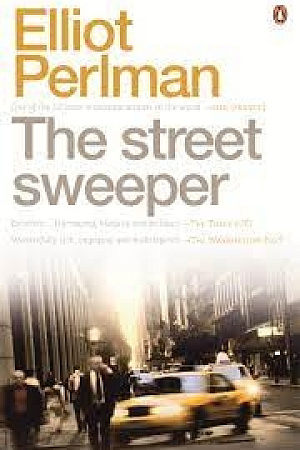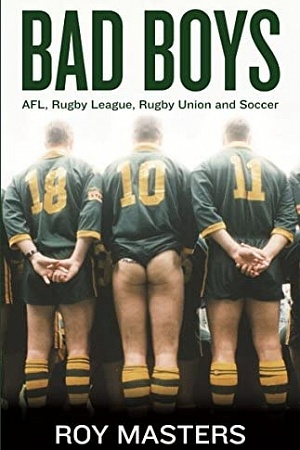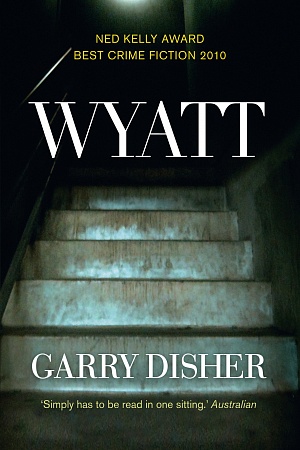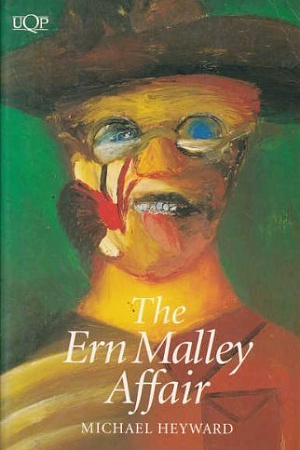Letters to the Editor – August 1991
Dear Editor,
Caroline Lurie (ABR No. 131) cited four common criticisms of deconstruction. I think a more important reason is the danger deconstruction poses to the privileged position of the author as the source of one or multiple meanings for a text. It is significant to note that it is mostly the authors (both of narrative and critical discourses) who are so upset about deconstruction.
It is true that the physical act of writing is accomplished by the author, and combined with the work of many editors, proof-readers and publishers, it takes the form of a written discourse. But, the function of the author does not end there. The author’s name, as pointed out by Foucault, performs a certain classificatory function, enabling different narrative discourses to be distinguished. Historically, according to Foucault, in all cultures, not all discourses had the privilege of an author or an author-function. The authors’ appropriation of discourses, representing a type of transgression, was sanctioned so that such discourses could be controlled and regulated.
In the capitalistic system, where all forms of culture (literature, art, cinema, music, sport) have become market commodities, the author-function, endowed to a particular discourses, plays an important role in creating, preserving, and perpetuating a power structure in the society. Only some particular types of discourses are privileged to become appropriated, recognised, rewarded and sometimes punished. The presence of an author helps to regulate the discourse through an elaborate set of copyright rules, contracts, advertising and critical reviews. For example, John Steinbeck’s name, on new paperback releases, is many times larger than the title of the book.
Deconstruction, gradually effacing the personage of the author, hits at the very base of the whole power structure.
Subhash Jaireth
Townsville
Dear Editor,
I am about to set off for Wagga Wagga to participate in the ASAL Conference for 1991 and give a brief paper on Charlotte Barton: Australia’s first writer for children.
One of my first points will be to pay credit to Mrs Marcie Muir who, in 1980, published a Wentworth Press monograph which revealed the correct identity of this author for the first time. The book, A Mother’s Offering to Her Children, published in Sydney on 18 December 1841, bore the pseudonym: By a Lady Long Resident in New South Wales.
In your May issue (No. 130) Subtext, you report: ‘At the 8 April auction of the Woodhouse Collection of rare Australian books of record sum of $17,600 was paid for Lady J.J. Gordon’s A Mother’s Offering to Her Children ...’ Marcie Muir proves conclusively that the author was, indeed, Charlotte Barton.
It is of interest that the State Library of Victoria currently catalogues the 1841 first edition of this work (incorrectly) under: Harriet Bremer (Lady J .J. Gordon), and the Jacaranda Press 1979 facsimile edition (correctly) under Charlotte Barton.
Mrs Dinny Culican
East Kew
Dear Violet,
A rose by any other name would smell a rat. I draw attention to the subtext of Subtext of Carlton Book Review (ABR No. 132).
Reference is made there to a ‘Melbourne Writer’s Centre’. Who can this writer be, and why are we gazing at the writer’s navel?
I mention these things in my capacity as co-ordinator of the Victorian Writers’ Centre, and I pause here to describe to you some of the features of the Victorian Writers’ Centre.
This Centre was opened early in 1990 at 12 Parliament Place, East Melbourne. It is a focus for writers and readers in Victoria, having a membership of 650. It publishes a monthly newsletter Centrefold, through which members learn of workshops, readings, meetings, seminars and other events at the Centre. Members are invited to contribute articles to Centrefold. At the Centre we dispense information and give guidance to writers. We have a writers’ reference library, and a register of writers which is frequently consulted by colleges, schools and other groups in search of workshop leaders and speakers. We publish a Handbook for Victorian Writers ($6 posted). Our telephone number is (03) 6547300 and we are listed in the Telephone Directory under V.
Carmel Bird
Director
Victorian Writers’ Centre
Ed’s note: Oh dear, oh dear. I’m sure I shan’t forget now where to stick the apostrophes. And I’m really sorry our office is in Carlton (I wish it weren’t because I really am getting heartily sick of picking my way through stubbies and condoms to get in the door in the morning, but there, I guess that’s the bohemian life for you). And may I please assure you that I have not gazed at a single writer’s navel all month, or any writers’ navels, for that matter. Nasty things, they are.
Dear Editor,
It is appropriate that Ania Walwicz has had the last word on the Dessaix debacle (‘nasty work indeed!’), but the preposterous accusations against the UTS of ‘fascist-style control’ and ‘a call for censorship’ in your June editorial (No. 132) cannot go unanswered. Considering that the only response to Dessaix from UTS that you published was a brief laudatory missive from the acting Head of Humanities, Stephen Muecke (whom Dessaix has cited as a ‘good guy’) your evidence is pretty slim. I assume you are referring to Jeannie Martin’s critique, which you didn’t publish, and my responses – which you dismissed as ‘defamatory’ without even bothering to stipulate where or how. In which case any ‘call for censorship’ surely came from you, perhaps in emulation of Dessaix’s technique of branding migrants from Mediterranean countries with ‘racist and sexist taxonomies’ in order to pre-empt similar accusations against himself.
We did run a public seminar-discussion on the Dessaix article at UTS, at which Muecke and Martin Harrison (also cited as a ‘good guy’) as well as other supporters of Dessaix’s argument were invited to speak – hardly an example of ‘fascist style control of the production of words and opinions’. None of our statements have at any time questioned Dessaix’s right to speak about multiculturalism, although we do consider that what he had to say was based on a mixture of [this removed because considered defamatory]. The flood of oppositional responses from non-Anglo writers and critics that you have published in ABR would surely seem to back this up.
‘Nice work if you can get it’ falls into step with recent right-wing attacks against multiculturalism in The Bulletin and The Australian, and the recent ‘new McCarthyist’ attacks on ethnic equity lobbies in American universities by John Taylor and others, and this is cause for concern. Informed, constructive, and incisive criticism of multiculturalism of the kind expressed by Sneja Gunew, Ghassan Hage and others are essential, but the fatuous smears and fodder for the right advanced by Dessaix and his ilk need to be rebutted. This does not amount to accusing ABR of being ‘scurrilous’ – a word you appear to have lifted from Ania Walwicz’s letter – merely irrelevant to anyone seriously interested in NESB writing. The fact that barely 20 of the 300 items reviewed in ABR in 1990 are by non-Anglo or Aboriginal writers is surely evidence of this, as is your recent feature on Eastern Australian writing, which seems to invite the reader to conclude that there aren’t any NESB writers in WA.
Dr Tony Mitchell
Cultural Pluralism, Racism and the Media Research Group, UTS
Ed’s Note: Dr Tony Mitchell sent a letter, and a copy to the sponsors of the Australian Voices essays, Telecom Australia, the contents of which, legal opinion advised, were defamatory. Jeannie Martin’s letter stated that in the ‘current economic and social climate’ she was shocked at ABR’s publishing ‘such an alarmingly irresponsible essay’, and that her reply was ‘a complaint to yourselves for publishing such an essay, as ultimately the responsibility lies with the publisher, not the author’.
Dear Editor,
Robert Dessaix begins his article, ‘Nice Work’ by quoting Ania Walwicz who was asked at a festival if she was an ethnic writer and replied to everyone’s delight, ‘No, I’m a fat writer’.
Dessaix reads this statement as evidence of the irrelevance (or even detrimental effect) of the strategies of multiculturalism and categories such a non-anglo-celt or NESB for (and on) ‘good’ Australian writers such as Walwicz. I found the quote fascinating and resonant, but read it quite differently to Dessaix. What it says to me is: I am the writer who lives inside this body.
So Ania Walwicz is an Australian writer who is additionally female, nonanglo-celtic, and (by cultural standards) fat.The more our bodies differ from those considered the ‘norm’ in this culture (the white, anglo-celt, adult, able-bodied, not fat, heterosexual male), the more likely this is to visibly effect what we write and what you hear.
To be a woman writer (or a lady doctor etc) has long been a label; only now are we developing the category ‘anglo-celt’ writer. That is, to designate those of us from anglo-celt backgrounds as speaking from a particular cultural position, in the hope that we will no longer be able to masquerade as speaking from a universal or neutral one.
Perhaps what Walwicz and others are complaining about is the fact that only they get asked about their ethnicity and how this matters to their writing. Just as only women writers get asked about how gender affects theirs; only gays get questioned about sexuality; only black writers get asked about skin colour, and so on.
The various kinds of labelling and anthology making that is going on around the country at the moment is only threatening if you see these as fixed categories that are mutually exclusive and static, or if they are used that way by the literary culture.
Or perhaps if you find yourself resentful of having to accept a label (which occasionally excludes you from a certain kind of experience or direct knowledge) where before you felt you could move through society without one and thus partake of any and every experience or writing position with a kind of god-like immunity, a bodilessness that gave rights to a certain cultural transcendence.
The more sophisticated of the writers on difference (and I would certainly include Sneja Gunew among these) are not in the business of creating or exploiting or exacerbating divisions within Australian society; on the contrary I would see them as in the business of healing these divisions. For such strategies would seem aimed not at reversing the oppositions (so that anglo-celt becomes the maligned term), but at collapsing them.
Beth Spencer
Waverley
Dear Editor,
Mea culpa! I’m sorry there were no quotation marks around ‘local details ... nuances ... little disturbances in language and gesture’, in my ‘Modesty’ essay (ABR No.130). The words are taken, as Lois Nettlefold points out (Letters, ABR No. 132), from Bill Buford’s Editorial to Granta 8 (1983).
The quotation marks were there in my review of Richard Ford’s Wildlife (Sydney Morning Herald 8 Sept 1990) from which I derived the peccant paragraph of ‘Modesty’. And I did attribute the observation to Buford – himself by reputation no great respecter of others’ words – in my review of Andre Dubus’s We Don’t Live Here Any More (National
Times, 3–9 May 1985). And I certainly attributed the remarks to Buford in a ‘Books and Writing’ ABC Radio piece about Raymond Carver sometime in the mid-1980s.
I really can’t explain, to myself or Ms Nettlefold, how I failed to include the quotation marks in my typescript for ABR. It wasn’t modesty. Perhaps it was what I affectionately think of the ‘Man Who Bowled Victor Trumper’ syndrome. (See the story of this name by Dal Stivens in the Murdoch & Drake Brockman anthology of Australian short stories, realist and otherwise, OUP 1951.)
Trusting that ‘Out of this nettle, danger, we pluck this flower, safety’.
Don Anderson
Darlinghurst

